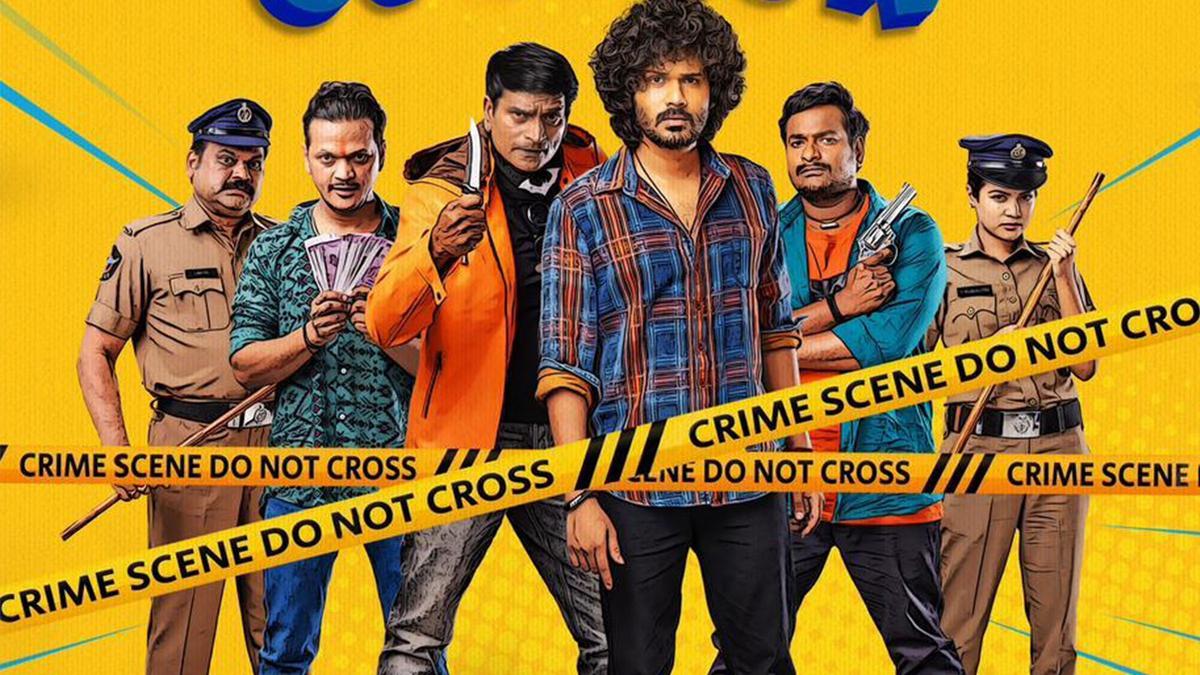
‘Changure Bangaru Raja’ movie review: This Ravi Teja production is a partly-amusing crime comedy
The Hindu
‘Changure Bangaru Raja’ movie review: Karthik Rathnam and Satya shine in this partly-amusing Telugu crime comedy produced by Ravi Teja
A character in Changure Bangaru Raja keeps getting called ‘Andhadhun’ by acquaintances and strangers alike when he loses sight of his mission though he isn’t limited by his vision. In the initial portions of this Telugu crime comedy written and directed by Satish Varma, a German Shepherd comes in the way of a truck, making it topple over and thus changing the course of events. The Andhadhun reference and this sequence is the writer’s hat tip to Sriram Raghavan’s crime caper and an indication to viewers to expect the unexpected. Changure Bangaru Raja is a far cry from Andhadhun’s brilliance, but manages to present a partially entertaining low-stakes crime comedy with a motley bunch of characters led by Karthik Rathnam, Satya and Ravi Babu.
Had Changure Bangaru Raja followed a linear screenplay, it would have been a rather simple whodunnit. The film uses a non-linear structure to narrate a set of events from three points of view, and eventually interconnect the smallest of incidents.
The drama revolves around Bangarraju (Karthik Rathnam), the village mechanic who wears his attitude on his sleeve. When his arch rival Somanaidu (Raj Tirandasu) is found murdered, he is the prime suspect. He must find the culprit and clear his name, and time is running out. To make things worse, he has already bruised the ego of the village police officer Sanyasi Rao (Ajay) and has brazenly wooed the police constable Mangaratnam (Goldie Nissy). All this happens in Narsipatnam where, each time it rains, people drop everything and flock to an area and begin digging in the hope of finding precious stones!
Two other characters whose journeys are integral to the happenings in the life of Bangarraju are Tata Rao (Satya) and Gateelu (Ravi Babu). The three characters have a backstory that gives them a reason to do the things they do. Suresh Varma delineates some of these aspects more strongly than the others. While we never lose sight of the romantic relationships of the three characters, there are other sub plots - a dying mother urging her son to never sell the family land, the German Shepherd Veerabobbili (whose thoughts we can read thanks to Sunil’s voiceover) who wants to be treated better - that are discussed sparingly but brought back to tie up the loose ends later.
While Bangarraju and Tata Rao’s stories have ample street smartness and hilarious lines (dialogues by Janardhan Pasumarthi) to keep us invested, the same cannot be said about the story of contract killer Gateelu. Not all the jokes about his Ghajini-like absent mindedness land. The romance also seems forcefit until the final reveal.
The manner in which the stories of the three are interlinked, with the events being narrated from each one’s point of view, and the supporting characters such as a police constable whose investigation abilities are rather silly and a television journalist whose masala-laden reportage of the the happenings in the village add to the fun. While the first hour packs in a lot of fun by leveraging the eccentricities of the several oddball characters, the inventiveness wears out in the second hour. The back and forth between the different points of view gets repetitive and you just want the story to get ahead.
Karthik Rathnam makes good use of a full-fledged role and is effective in portraying the attitude of an arrogant mechanic. He is also good in the rare quieter moments when he realises the mess he is stuck in and conveys the sense of urgency to get out of the rut as things keep getting stacked against him. Satya gets a larger bandwidth to unleash his comic timing and he aces it. The writing of his romance is also self-aware and acknowledges the age gap between his character and that of Nithyasri.













